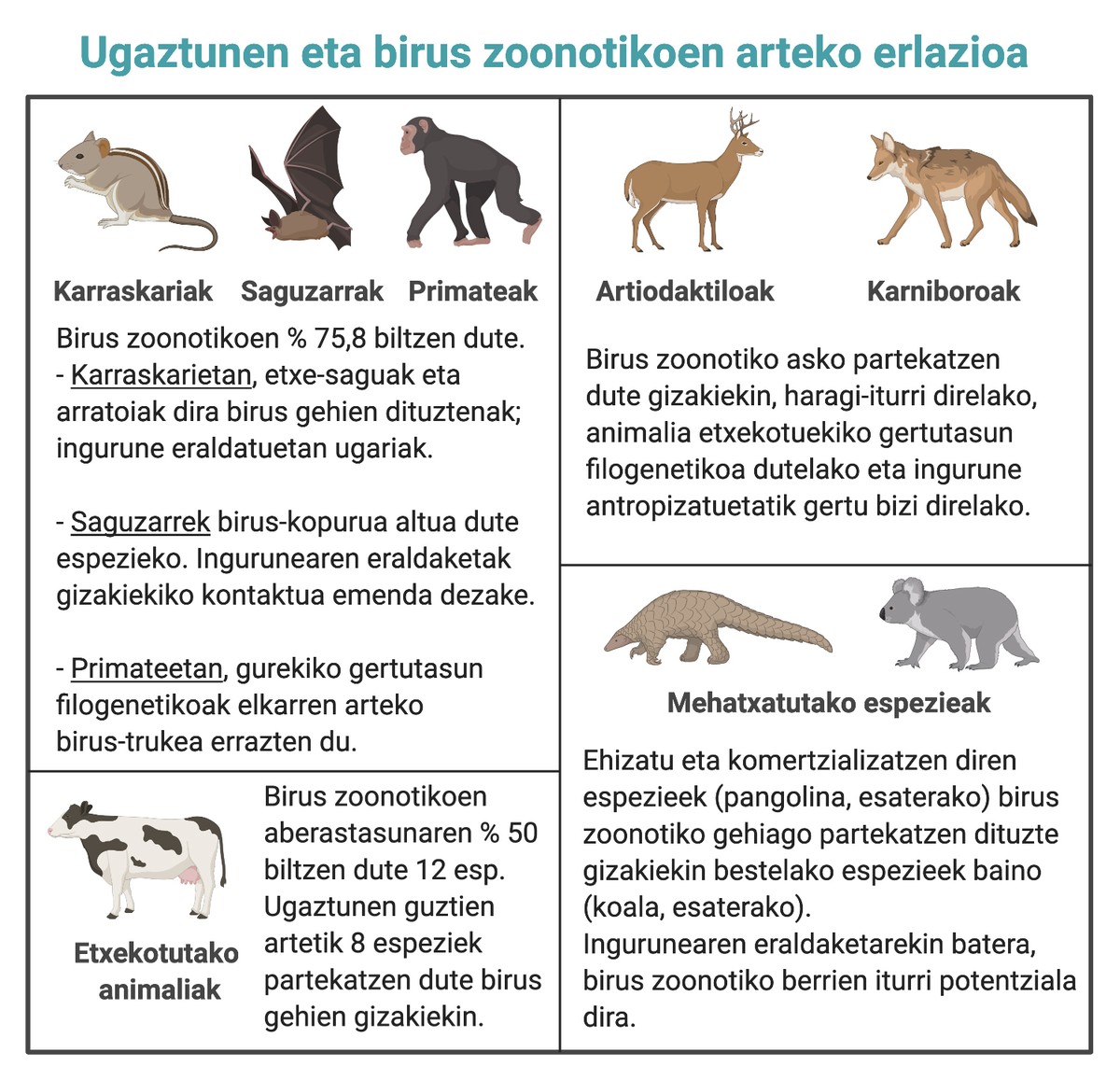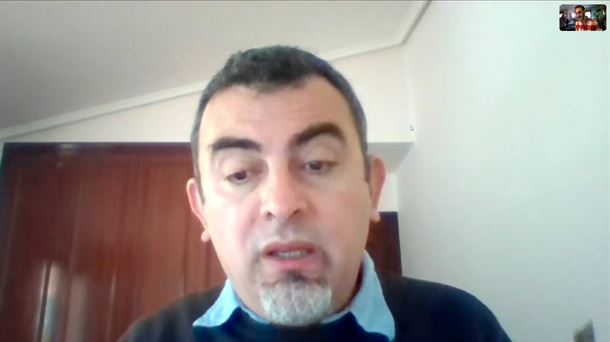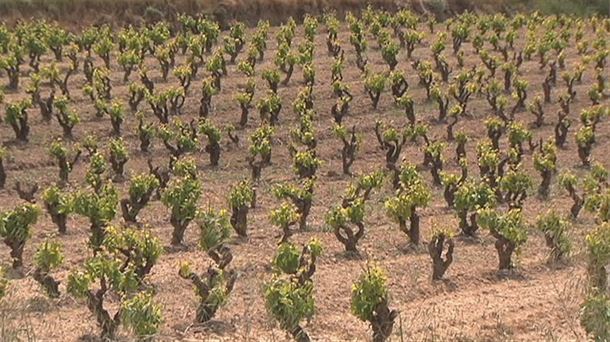For the ecological economy of the Basque Country after covid-19
2020/05/04 Elhuyar Zientzia Iturria: Elhuyar aldizkaria
In the midst of the COVID-19 crisis, more than four hundred Basque scientists have asked to bet on the ecological economy. They want to promote the social debate on the sustainable future of Euskal Herria. Here is the manifesto:

COVID-19 is generating an unprecedented crisis in the world and in Euskal Herria, generating destructive costs for people, society and the economy. While an important part of the scientific community is trying to understand the origin and development of the pandemic and to stop the spread of the virus without interruption, we feel the need to contribute our vision from the academic field of the current situation, as well as to propose lines of work that prevent the repetition of the serious errors committed in the past and that allow to properly address the construction of a new future.
Science has warned that in the irresponsible relationship with nature the crises we suffer today take root. We cannot forget that this crisis we are experiencing coincides with other global crises that are serious for the environment and society, such as the accelerated loss of biodiversity or climate change, which remain without a clear solution due to little political ambition. The possibility of completing it from the conclusions of COVID-19, both individually and collectively, will depend on our resilience and capacity for transformation. We are facing a historic crossing: follow the same wrong path or change direction.
COVID-19 is having a strong influence, both on a human and economic level, largely due to a global development model rooted also in the Basque Country. This model, to maintain itself, needs to destroy nature, generating increasing impacts and environmental imbalances, increasing the serious associated social costs. The weaknesses of the current economic model are clearly observable through the presence of mirrors: the large unemployment exchanges and job insecurity, the imaginary of a false dichotomy between health and economic development, the growing pressure on the necessary public sectors (such as health, education or science), the feminized labor sectors and the deep crisis of the care system, the increased dependence of the financial sector and the corporations of the financial sector and new technologies, etc.
Change address
Another important weakness of the current socio-economic model is the need to maintain sustained economic growth to achieve the possible stability of society, which accentuates the social and environmental crises stemming from climate change and biodiversity loss. Biodiversity is necessary to maintain important ecosystem functions and prevent the spread of viruses such as covid-19 to people. Scientists have spent decades warning of biodiversity loss and ecosystem degradation as a perfect seed for future outbreaks of virus.Biodiversity conservation, from this point of view, is life insurance for our society and therefore a strategic investment, never an expense.
We are aware that in this period of pandemic, even in the short term, the positive effects that can be detected in the environment are evident, such as the reduction of air pollution in towns and cities, the reduction of greenhouse gas emissions or the decrease of the pressure we exert on the natural environment. But these positive effects can disappear by returning to “normal.” Concerted efforts sustained over time and planned according to social justice parameters are required to maintain the improvement of social and environmental indicators over time.
Given this diagnosis, we need a comprehensive vision to plan a resilient, sustainable and just after covid-19, even in Euskal Herria. We cannot stay behind. A strategic error of incalculable cost would not address these challenges. The current crisis is a unique opportunity to foster positive values in society, such as solidarity or mutual care are two essential qualities to achieve the necessary transformation. These values, on the other hand, can be perceived from our balconies, when society has wanted to thank the people who work in the basic sectors, from health, without forgetting all the people who offer us care, basic services and essential products and services. Paradoxically, the working conditions of many of these workers are often worse and almost without recognition.
This declaration, signed by people from the academic field in which we work in the Basque Country and/or in other countries in which we develop teaching and science, aims to suggest a basis for moving towards a truly sustainable socio-economic model in the Basque Country, both during the crisis and after. We propose five basic strategic lines to drive this transformation. The following proposals should be finalized and implemented without delay in order to consolidate a more sustainable direction following the health crisis:
1. Eliminate the development model based on the aggregate growth of Gross Domestic Product (GDP). In this sense, some sectors that need to be reduced by lack of sustainability or excessive potentiation of insubstantial consumption, especially associated with the use of fossil or nuclear fuels, mining, etc., must be differentiated from those productive sectors that can grow and therefore require investment (for example, key public sectors, such as those related to education, health, energy and sustainable materials). To do this, it is necessary to replace GDP with other indicators based on integrated environmental and economic accounting systems, rather than as the main indicator, and indicators that aim to mark a path of sustainable development. All of them must take into account the effects of economic growth on the human well-being and well-being of the planet and, in its broadest sense, on society and the environment, in order to focus it on a future that guarantees the sustainability of life.
2. Promote from public institutions policies of production, investment and consumption that take into account ecological limitations and avoid unfair and unacceptable debt for future generations. Similarly, through Universal Basic Income, a care system should be developed that involves people in the center, recognizing our vulnerability and interdependence. From there, the productive model must aim to ensure essential goods and services that guarantee the health and well-being of citizens, based on resilience in proximity, advertising and the commitment to the common good. This will minimize the dependence of the global market, its variability and its speculation, which depends largely on strategies of productive delocalization of these essential goods and services. This challenge is to expand and materialize the concept of km 0.
3. Design and implement progressive environmental taxation, avoiding overexploitation of natural resources and combating the climate crisis and degradation of ecosystems. This will also be a strategic tool to finance the ecological transition through mandatory investments in science and technology. As an economically advanced country, in part because of the ecological debt we have historically contracted, we must be at the forefront of Europe by promoting real policies of sustainable development, putting at the center of any political action the challenge of the climate crisis.
4. Eliminate a mobility model based on large infrastructures and unsustainable modes of transport that generate excessive environmental, economic and social costs. Large infrastructure investments require a moratorium, both at this time and in the future, to prioritize essential services needed. It is necessary to design a new model of mobility that damages less the environment and dissipates less energy, with a greater weight of non-motorized mobility and public transport, and that focuses on the creation of proximity networks.
5. Transformation of the agro-food system to advance food sovereignty based on agroecology. This ensures biodiversity conservation, sustainable and local food production, always under decent working conditions. To do this, it is necessary to reorder the territory and relocate the global food production and distribution chains to favor the closeness relationship between producers and consumers, and balance biodiversity, water and the natural environment with urban and rural nuclei and their processes. Also, respect, protect and guarantee the right to healthy and nutritious food, especially in situations of crisis such as the one we live today.
Today, more than ever, the realization of the principle of provision of essential goods and services based on proximity leads us to prioritize the territorialization of our activities through new forms of government. Among them, local ecosystems become the basis of climate adaptation to the crisis, as global decarbonization is associated with mitigation.
As people committed to the socio-ecological future of Euskal Herria, we believe that these guidelines will bring a more sustainable and fair society, because they are designed to respect nature and all people from positive values. We are convinced that it is the best investment for future generations, as they will have to face difficult situations. We also believe that the proposed bases are an alternative to the current unsustainable model, so we must work as soon as possible in Auzolan to build a new future, learning to manage uncertainties. It is a good time to open up new opportunities in Euskal Herria. We ask the social and territorial agents and groups, the institutional representatives of all the territories of Euskal Herria and the entire Basque society in general not to miss this opportunity.
What do we expect? Sign the manifesto.
Sincerely in Euskal Herria, May 2020

Gai honi buruzko eduki gehiago
Elhuyarrek garatutako teknologia






